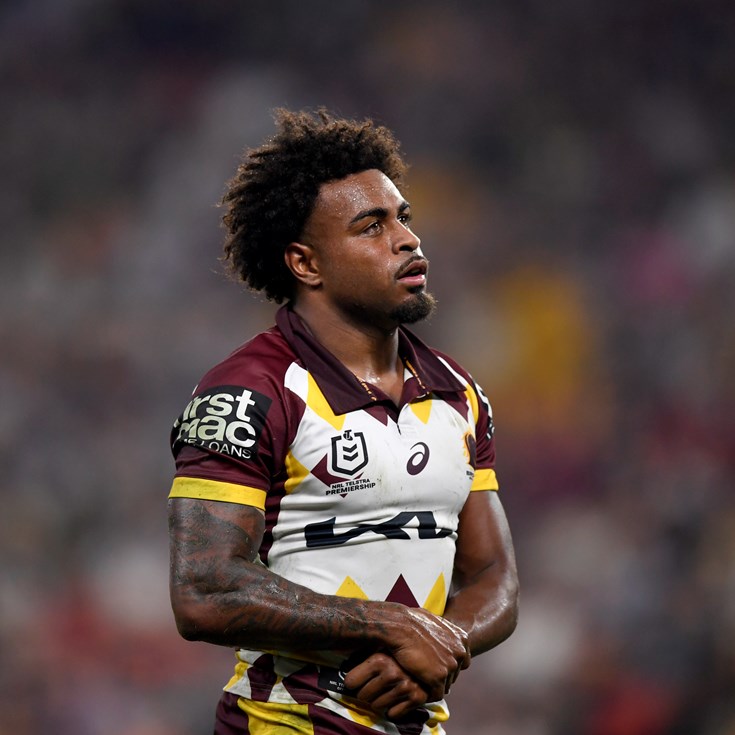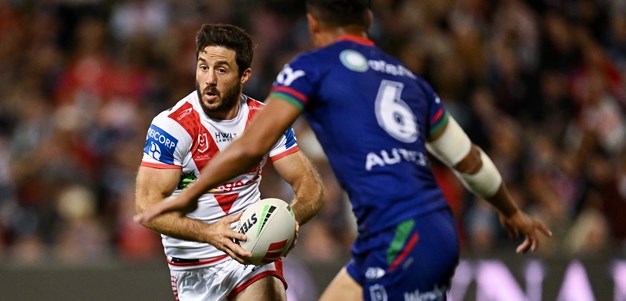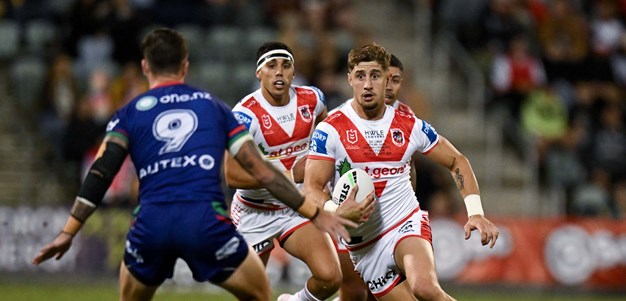In a season littered with rocks the Warriors came so close to unearthing a diamond in 2014. Fourteen differential points was all that stood between the New Zealanders and eighth position, but there can be no hiding from an inexcusable late-season collapse which saw them win just one game in the final month of the competition.
Defeats to the Eels and Dragons through the opening rounds weren’t exactly the ideal start, but quality victories over the Cowboys and Tigers ensured those memories disappeared quickly. Then an ugly 37-6 loss to the Sharks in Round 5 signalled the beginning of a nightmare period for the club and their fan base. The following day coach Matt Elliott was gone and in the weeks thereafter the club’s two owners engaged in a much-publicised spat and the CEO announced he would resign at the end of the year. The unheralded Andrew McFadden stepped up to the plate as head coach, rejuvenating the Warriors’ style of play and guiding them to seven wins from nine between Rounds 8-18.
Heading into the last quarter of the season the Kiwi side were among the competition’s form outfits and were being tipped by many to not only make the top eight, but crack a top-four berth ensuring a home final. But then things started to fall apart. Star halfback Shaun Johnson spent three weeks out with a groin injury and the Warriors lost five of their final eight games to snatch disappointment from the jaws of finals success. With everything to play for in the last-round clash with the Panthers the Warriors went down with only the faintest of whimpers, losing 22-6 to ensure they wouldn’t play past the first week of September.
It wasn’t all doom and gloom for the New Zealanders however. In McFadden the club looks to have unearthed a young coach with the knowledge and 'tough-love' attitude they need to take them forward, and both he and the playing group should be better for the experience of 2014. Centre Konrad Hurrell recovered from an early-season stint in the ‘fat club’ to become one of the NRL’s elite attacking centres, while star off-season recruit Sam Tomkins showed enough to suggest he will be a quality accusation for the Warriors over the coming years.
Where They Excelled: The New Zealanders ended the season with the third-best attack in the competition, finishing with 104 tries in 24 games, a stat bettered only by the Roosters (106) and Cowboys (105). Throughout the season the Warriors produced some spectacular moments with the ball in hand, scoring 30 points or more in seven games as Johnson, Hurrell and Manu Vatuvei in particular found top form. They also penetrated the line more often than any other team bar the Roosters, averaging five line breaks per match and using their potent combination of power and speed to become the leading cause of headaches for opposition defensive lines in 2014.
Where They Struggled: Defensive downfalls and poor performances on the road meant that much of their good work counted for little this season. When you average 29.7 missed tackles and concede 10.9 offloads per game it is unlikely you will find yourself playing post-season footy, and those two areas alone cost the Warriors victory in several close matches. They may have piled the points onto opposing sides on a few occasions this season, but the Kiwi side also knew how to leak them. In five games they conceded more than 30 points, averaging 20.4 which exceeded the NRL average of 19.9 for season 2014. The club also continued a tradition which has followed them through their 19-year history, struggling to pick up points on the road. In 12 games away from home the Warriors won on just four occasions.
Missing In Action: Using 31 players this season the Warriors fell well short of the highest turnover [Sharks with 37], but the players affected by injury, as well as the timing of them, was what did the damage for the Kiwi men. Losing winger Glen Fisiiahi – who scored seven tries in the opening five rounds to lead the competition – was a major blow only a month into the season. Coupled with injuries to Hurrell, Dane Nielsen, David Fusitu’a, the mid-season departure of Kevin Locke and the early retirement of Jerome Ropati, it stretched the club’s backline stocks to the limits. While it wasn’t a long-term injury, the absence of Johnson between Rounds 20-23 stalled the momentum the Warriors were carrying towards the final games and they never really recovered.
Turning Point: They may have won the game 16-12, but the Round 22 clash with the lowly Sharks signalled the beginning of the end for the New Zealanders. They limped home in unconvincing fashion before backing it up with a 28-22 loss to the Knights on the road and a season-worst 46-12 defeat to the Roosters at Mount Smart Stadium. The Warriors struggled to score points or generate any excitement with the ball in hand against the Sharks, being held scoreless in the second half and avoiding defeat thanks only to Pat Politoni blowing a game-winning try late in the piece. The Warriors’ confidence levels suffered a significant dent from that moment on.
Best Games: Home shutouts of the Eels (48-0) and Titans (42-0) along with 54-12 and 54-18 crushings of the Raiders were the most aesthetically pleasing encounters throughout the year. But the best game had to be the 16-10 win over the Storm on Anzac Day back in Round 8. The gritty victory was the first sign that the Kiwi team could be a legitimate force in a season which had started with so many distractions, and was McFadden’s first win as a head coach after taking over three weeks earlier. The game also kick-started the Warriors’ mid-year revival, with the club going on to win six of their eight games which followed.
Worst Games: The 46-12 demolition by the Roosters wasn’t pretty on any level. In front of the season’s biggest crowd at Mount Smart Stadium, and with everything to play for in regards to their finals fate, the Warriors dished up their worst showing of the year as the Roosters ran riot. The New Zealanders missed no fewer than 50 tackles and weren’t much better on the other side of the ball, running for a paltry 997 metres and producing a sole line break in a game where they spent only 25 minutes in the opposition half and were outscored eight tries to two.
Hold Your Head High: Jacob Lillyman was a constant pillar of strength in a forward pack which struggled at times in 2014. Playing every one of the Warriors’ 24 games ‘Bull’ ran for over 100 metres in his first 12 appearances, averaging 120 across the season. Another seasoned veteran to have a fine campaign was winger Manu Vatuvei, who finished as the club’s highest try scorer (17), while also averaging 13.6 runs and 139 metres across 23 games. Hooker Nathan Friend was the NRL’s top tackler with 44.7 per outing, and had monster 50-plus efforts on nine occasions. While the durability of captain Simon Mannering, second-year prop Suaia Matagi and fullback Tomkins – who all played every game – is also worth noting.
Conclusion: In a year of changing coaches, feuding owners and bruised-up players most Warriors fans were surprised just to see the team in the running for the finals come the last day of the season. In his first year as an NRL coach McFadden did a good job of transforming the Warriors’ attitude towards defence and completing sets with the ball in hand, but ultimately couldn’t get them to consistently shake off a few age-old habits. Considering where they started from 2014’s ninth-place finish was an admirable result, but success in the NRL is almost always defined by whether or not you make the finals, something the Warriors failed to do for a third-straight year.
SEASON STATISTICS
Wins: 12
Losses: 12
Position: 9th
Home Record: 8 wins, 4 losses (=3rd)
Away Record: 4 wins, 8 losses (=5th)
Longest Winning Streak: 3 (Rounds 15-18)
Longest Losing Streak: 3 (Rounds 5-7)
Players Used: 31
Tries Scored (after 26 rounds): 104 (3rd)
Tries Conceded (after 26 rounds): 87 (8th)
• Stats: Champion Data



